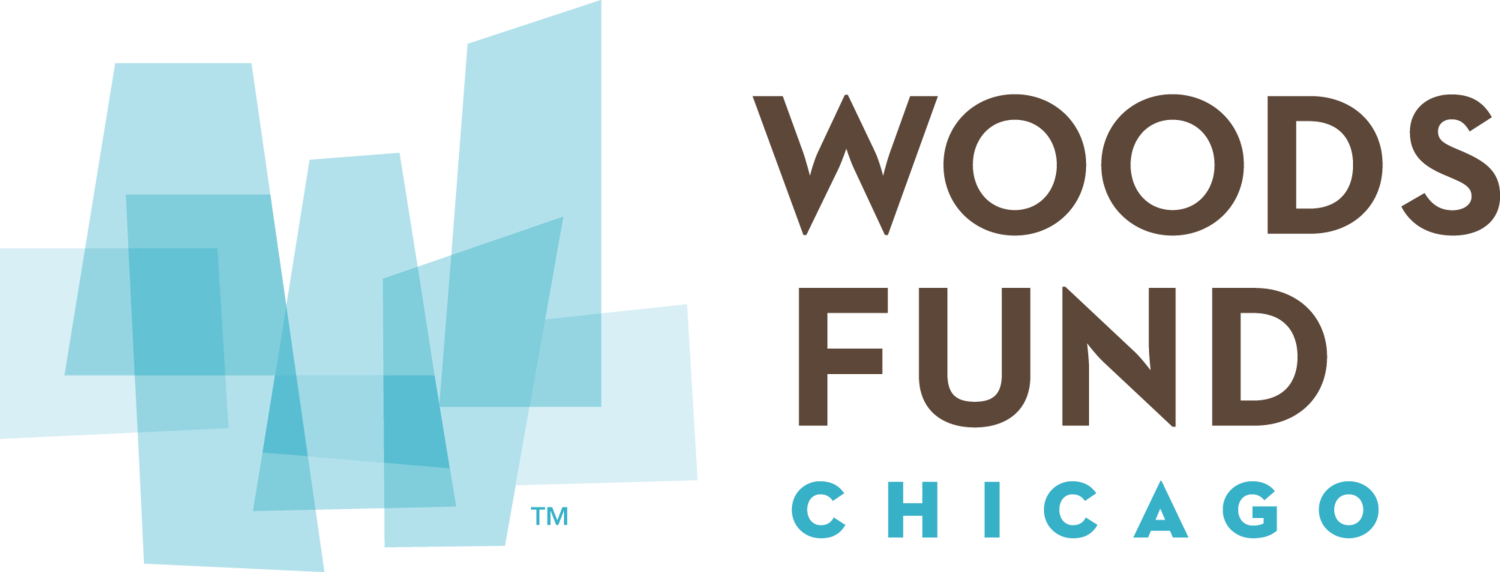Explore the Top Woods Fund Chicago Readings of 2024
Every month, Woods Fund Chicago shares with our networks a list of articles, podcasts, videos, and more that examine the issues at the top of our minds, explain how these issues came to be, spotlight the work and advocacy, of our grantee partners, and demonstrate how funders can meaningfully support community organizing that transforms the City of Chicago.
Explore the top readings of 2024 below, ranging from calls to action for the philanthropic sector, reporting on homelessness, labor, youth, and public safety, and pieces that dissect the history and consequences of larger systems such as capitalism and borders.
Photo by Working Family Solidarity
Philanthropy: How Funders Can — and Should — Rise to the Moment
Several top readings from 2024 implore the philanthropic sector to stick to key values and commitments and to serve our grantee partners as a buffer from political attacks, racial injustice, burnout, and more — an increasingly urgent call for Woods Fund Chicago and our peers.
Racial Justice Programs Under Fire: Foundations Are Running Scared When They Should Double Down // The Chronicle of Philanthropy // February 6, 2024
“...[Grantmakers] need to deepen their defense of equity and justice, following the lead of foundations that have remained committed to explicitly supporting specific racial groups. The most important question to ask isn’t ‘How can we protect ourselves?’ but ‘What are our values?’ Supporting people of color as they pursue freedom and self-determination should top the list.”
— Lori Villarosa, Ben Francisco Maulbeck, and Gihan Perera for The Chronicle of Philanthropy
Photo by Inner-City Muslim Action Network (IMAN)
Black Women Leaders Are Powering Philanthropy // Nonprofit Quarterly // February 22, 2024
The Future of Philanthropy Is Trust-Based // Stanford Social Innovation Review // March 1, 2024
State of Nonprofits 2024: What Funders Need to Know // Center for Effective Philanthropy // May 29, 2024
What to Read in Black Philanthropy Month // Nonprofit Quarterly // July 24, 2024
Labor and Its Intersections with Migration and the Environment
The top labor readings of the year feature a wide range of our grantee partners organizing for labor protections for day laborers and immigrant workers, warehouse employees, and impacted communities.
How Funders Can Help Immigrant Workers Win the Protections They Deserve // Inside Philanthropy // April 26, 2024 // Featuring WFC Grantee Partner Arise Chicago
Mega-warehouses heap more pollution on hard-hit Illinois neighborhoods // The Guardian // April 24, 2024 // Featuring WFC Grantee Partners Warehouse Workers for Justice and Little Village Environmental Justice Organization
‘They grabbed me like I was a doll’: Day laborers say they are being beaten and targeted outside Home Depot by off-duty Chicago police working security // City Bureau // August 6, 2024 // Featuring WFC Grantee Partner Latino Union
“Seeking happy [and] healthy lives should be something that anybody [who] resides in the city should be able to do. Unfortunately, a lot of those things… are criminalized.”
— Miguel Alvelo Rivera, Executive Director of WFC Grantee Partner Latino Union, featured in City Bureau
Photo by Latino Union of Chicago
Providing Alternatives for Youth Support
Some of this year’s top readings address how Chicago can invest in its youth, particularly by providing accessible opportunities for recreation and mental health resources and by preventing racial profiling and overpolicing in schools.
Lakaya Knight: To bring an end to ‘youth trends,’ the city must create mental health alternatives // Chicago Tribune // January 7, 2024 // Featuring WFC Grantee Partner Communities United
“Youth trends are not the problem. The problem is that we youths have to create our own experiences for healing and engagement because we don’t have such resources in our communities…. As a Communities United youth leader, it is clear to me that having access to mentors, leadership development opportunities and youth social spaces can make a difference.”
— Lakaya Knight, Youth Leader for WFC Grantee Partner Communities United, writing for the Chicago Tribune
Photo by Communities United
Report: Many School Districts Have Reformed or Removed Police Since 2020 // South Side Weekly // May 9, 2024 | Featuring WFC Grantee Partners Brighton Park Neighborhood Council, Assata's Daughters, Southside Together Organizing for Power (STOP), youth members of Asian Americans Advancing Justice and HANA Center, and Enlace Chicago.
Community Advocacy and Safety
Systemic disinvestment — particularly of communities of color — create cycles of violence and homelessness that can be challenging to disrupt. Community advocates across several of our grantee partners and their coalitions are calling for systemic change that ends these cycles.
🎧 What’s the best way to count Chicago’s homeless population? // WBEZ Reset // January 29, 2024 // Featuring WFC Grantee Partner Housing Action Illinois
"Kenwood Oakland Community Organization leaders are lobbying city officials to add a citizen liaison between police officers and families whose loved ones are missing. 'There's always this carousel of officers.... A lot of times people call the district, and they have nobody responding or constantly a different detective, so you can imagine how that leaves a loved one.'"
— Shannon Bennett, Executive Director of WFC grantee partner Kenwood Oakland Community Organization, speaking to the Chicago Sun-Times
Photo by Kenwood-Oakland Community Organization (KOCO)
Hundreds march to demand more help finding Black girls and women who are missing — but never forgotten // Chicago Sun-Times // June 6, 2024 // Featuring WFC Grantee Partners Kenwood Oakland Community Organization, Lugenia Burns Hope Center, GoodKids MadCity Englewood, and Southside Together Organizing for Power
13 Black-led organizations that assist Chicagoans experiencing intracommunity violence // The Triibe // July 13, 2024 // Featuring WFC Grantee Partners GoodKids MadCity and Chicago Freedom School
How Did We Get Here?
These issues touch nearly every facet of how the city operates, but these issues are not limited to Chicago — and are ultimately connected to entrenched racism and the rise of capitalism. Two of this year’s top pieces take a deep dive into how we go to this point, providing a crucial entry point for understanding systemic injustice.





